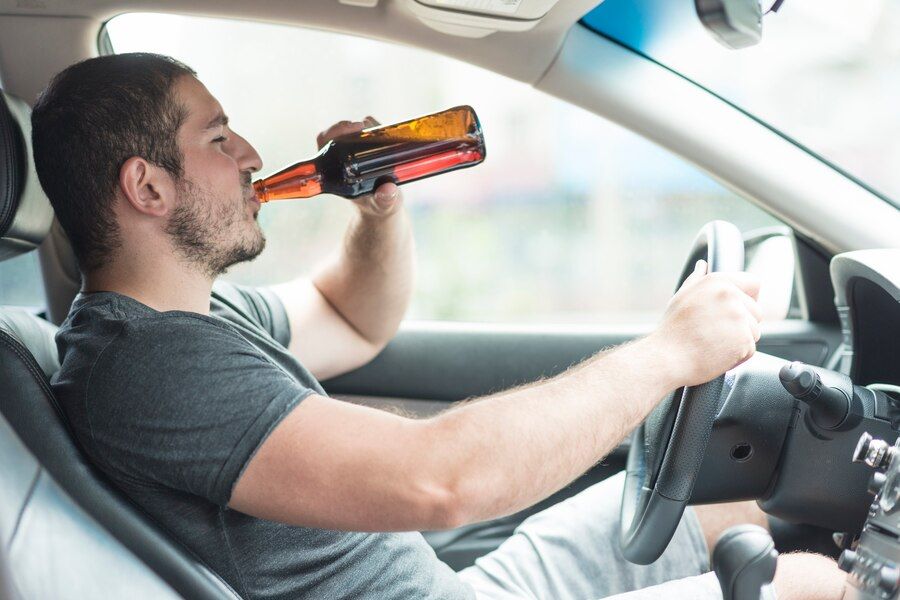
Driving under the influence (DUI) is a severe offense that can have profound consequences for individuals caught in its legal web. While some may perceive DUI as a mere traffic violation, the reality is far more complex. Understanding the distinction between a DUI and a minor traffic violation in Nevada is crucial for anyone seeking legal guidance.
DUI vs. Traffic Tickets: Understanding the Difference
Traffic tickets, commonly issued for violations such as speeding or running a red light, are considered minor infractions in the eyes of the law. These infractions typically result in fines and demerit points on your driving record. However, a DUI takes the legal consequences to an entirely different level.
A DUI is not just a traffic offense but a criminal offense. Unlike a routine traffic ticket, a DUI involves operating a motor vehicle while under the influence of alcohol or drugs, surpassing the legal blood alcohol limit. The severity of a DUI charge is evident in its potential consequences.
Is a DUI Considered a Traffic Violation in Nevada?
In Nevada, as in many other states, a DUI is not classified as a traffic violation; it is unequivocally a criminal offense. The state’s stringent DUI laws reflect the severity with which it addresses impaired driving. Nevada distinguishes traffic violations and criminal offenses, making it essential for individuals to comprehend the legal distinctions.
Consequences of a DUI: Beyond a Traffic Ticket
When charged with a DUI, individuals can face a myriad of consequences that extend far beyond the realm of a typical traffic violation. These consequences may include:
License Suspension: A DUI conviction often results in the suspension of your driver’s license, impacting your ability to commute and carry out daily activities.
Jail Time: Unlike minor traffic offenses that typically incur fines, a DUI conviction may lead to imprisonment, especially for repeat offenders or those with exceptionally high blood alcohol levels.
Criminal Record: A DUI goes beyond a mark on your driving record; it becomes a stain on your criminal history, affecting various aspects of your life, from employment opportunities to housing.
Community Service: Courts may mandate community service as part of the penalty for a DUI conviction, emphasizing the gravity of the offense.
Ignition Interlock Device: In some cases, individuals convicted of DUI may be required to install an ignition interlock device in their vehicles, adding a layer of monitoring to their daily lives.
Fines and Penalties: The financial repercussions of a DUI are significant, with fines often exceeding those associated with minor traffic violations.
Understanding these consequences underscores the fact that drunk driving is not merely a traffic violation but a criminal offense with far-reaching implications.
Difference Between a DUI Ticket and Citation
In general, the terms “DUI ticket” and “DUI citation” are often used interchangeably, and both refer to legal documents issued to individuals who are suspected of driving under the influence (DUI) of alcohol or drugs. However, it’s important to note that the specific terminology and legal processes can vary by jurisdiction. Here’s a general overview:
DUI Ticket:
A DUI ticket is a colloquial term often used to describe the document issued by law enforcement officers to individuals suspected of driving under the influence.
This document typically includes information such as the date and time of the alleged offense, the location, and details about the driver’s behavior or condition that led to the suspicion of impairment.
The ticket may also specify the charges, often as a notice to appear in court.
DUI Citation:
Similar to a DUI ticket, a DUI citation is a formal notice issued by law enforcement to a person accused of driving under the influence.
A DUI citation provides information about the alleged offense, including the date, time, and location. It may also include details about the driver’s blood alcohol concentration (BAC) or the presence of drugs.
Like a ticket, a citation typically requires the individual to appear in court to address the charges.
How an Attorney Can Help: Navigating the Legal Maze
Facing a DUI charge can be an overwhelming experience, but individuals are not without recourse. Seeking legal representation is crucial to navigating the complexities of DUI laws in Nevada. A skilled DUI attorney can provide invaluable assistance in the following ways:
Understanding Nevada DUI Laws: DUI laws vary from state to state, and Nevada is no exception. An attorney specializing in DUI cases deeply understands the state’s specific statutes and legal nuances.
Building a Strong Defense: A DUI attorney can assess the circumstances surrounding your case and build a robust defense strategy. This may involve challenging the legality of the traffic stop, the accuracy of field sobriety tests, or the reliability of breathalyzer results.
Negotiating Plea Bargains: In some cases, an attorney may deal with the prosecution for a reduced charge or sentence, mitigating the overall impact of a DUI conviction.
Protecting Your Rights: A DUI attorney ensures your rights are safeguarded throughout the legal process. This includes protecting against unlawful searches and seizures and following due process.
Navigating Court Proceedings: The legal system can be intricate and intimidating. An experienced attorney guides individuals through court proceedings, explaining each step and providing reassurance during a challenging time.
Exploring Alternative Sentencing Options: Depending on the circumstances, an attorney may explore alternative sentencing options, such as alcohol education programs or rehabilitation, to address the root causes of the offense.

Secure Your Future with BLG: Your Trusted DUI Defense Advocates
In conclusion, the notion of a DUI as a minor traffic violation is a misconception that can lead to serious legal consequences. Understanding the distinctions between a DUI and routine traffic offenses is paramount for individuals seeking legal guidance in Nevada. It is not merely a matter of paying a fine and moving on; a DUI is a criminal offense with severe penalties. Seeking the assistance of a qualified DUI attorney is not just advisable; it is essential for navigating the legal complexities and safeguarding one’s rights in the face of a DUI charge.
If you or a loved one is facing DUI charges in Nevada, don’t face the legal complexities alone. BLG is here to help you navigate the challenges and safeguard your future. Our experienced DUI defense attorneys are ready to fight for your rights, minimize the impact on your life, and guide you through every step of the legal process.
Contact us today for a free consultation.
FAQs
What is considered a minor traffic violation in Nevada?
Minor traffic violations in Nevada typically include speeding, running a red light, or failure to signal. These are generally non-criminal offenses that may result in fines and points on your driving record.
Are all traffic violations misdemeanors in Nevada?
No, not all traffic violations in Nevada are misdemeanors. Traffic offenses are generally categorized into two types: infractions and misdemeanors. Infractions are less serious and often involve simple violations, while misdemeanors are more serious traffic offenses. Examples of misdemeanor traffic violations may include reckless driving or driving under the influence (DUI).
Is a DUI considered a minor traffic violation?
A DUI (Driving Under the Influence) is not considered a minor traffic violation. DUI is a serious offense that involves operating a vehicle under the influence of alcohol or drugs. In Nevada, as in many other places, DUI is typically treated as a criminal offense and can result in severe consequences, including fines, license suspension, and even imprisonment.
Is a DUI a traffic violation?
While a DUI involves a violation of traffic laws, it is generally more severe than a typical traffic violation. DUI is often considered a criminal offense rather than a simple traffic infraction. It involves driving under the influence of alcohol or drugs, posing a significant risk to public safety. Penalties for a DUI can include criminal charges, fines, mandatory education programs, and license suspension or revocation.




